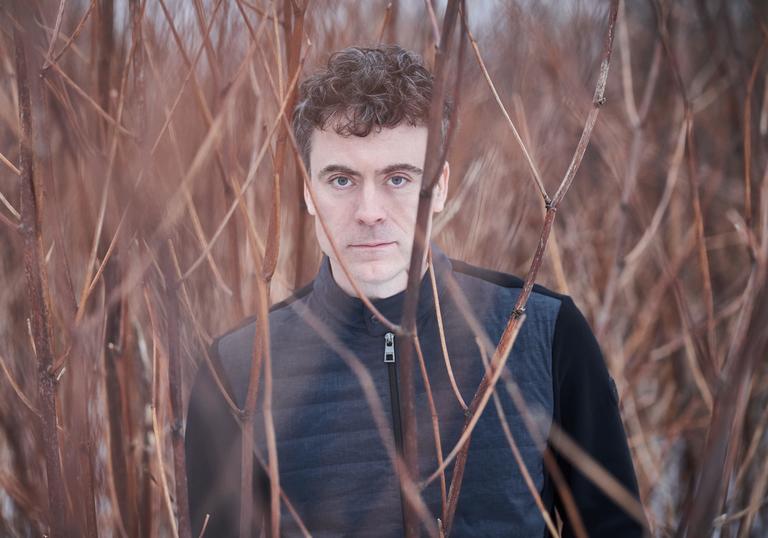There’s no easy answer, especially when the musician in question is British pianist Paul Lewis – someone who has built a career of considerable stature while remaining understated and modest in conversation.
Composers such as Beethoven and Schubert have long been central to his life in the concert hall and recording studio (he memorably performed all five Beethoven concertos at the 2010 Proms, each with a different orchestra and conductor). So a 50th-birthday celebration without Beethoven would have been strange indeed. But even for such a seasoned interpreter of his music, starting a concert with the fiery Pathétique is no walk in the park. As Lewis explains: ‘I love it because it makes such an arresting opening to a concert – it really sets the pace for the entire recital – but it’s nerve-wracking too, as those opening bars are so dramatic.’
The Pathétique is one of those sonatas, alongside the Appassionata with which Lewis ends the concert, where the nickname isn’t Beethoven’s own, but it’s more apt than some: its craggy slow introduction – something Beethoven had never previously used in a piano sonata – has a powerful gravitas to it, emphasised by its dramatic key of C minor (one that he was to use equally potently in his Fifth Symphony and Third Piano Concerto) and even as the music gathers speed, its doom-laden power is not to be shaken off. And, notwithstanding a lyrical slow movement that offers much-needed serenity, it’s C minor and a mood of defiance that ends the piece.
The Pathétique is the product of a composer not yet 30, whereas the Appassionata dates from between Beethoven’s Third and Fifth Symphonies and very much emulates their fist-shaking drama. And though it’s again in a minor key (F minor) it’s more heroic in mood than the Pathétique. It’s also a work technically beyond the capabilities of most amateur pianists – the sonata had, in Beethoven’s hands, become the domain of professional artists. And here we also have a perfect example of a composer responding to the development of the instrument itself: the low ‘F’ that appears in the opening phrase of the Appassionata was beyond the reach of earlier pianos but featured on the new Érard he’d recently received.
A couple of decades later, the Érard piano was to become the favoured make of Chopin’s, a composer whose music we wouldn’t necessarily immediately associate with Paul Lewis. Today’s programme includes the near-nihilistic Polonaise-fantaisie, written just three years before the composer’s premature death in 1849. Had Chopin in fact been a long-held passion restricted to the practice room or a new-found enthusiasm for Lewis? He ponders: ‘I do find myself being quite selective with his music – I had a Polish piano teacher, Ryszard Bakst, at Chetham’s and the essential thing I learnt from him was the underlying dignity in Chopin’s musical language: that’s a quality that can be hard to project in performance. And, for me, the mazurkas in particular are very hard to bring off without feeling like a fraud. But in the case of this polonaise I feel I can grasp it, especially as it’s a fantasy too. It’s one of the saddest pieces I know – anguished and desperate and introspective at the same time. And while the Appassionata contains anguish too, it shakes its fist at you, whereas this is ultimately resigned.’
Like Chopin, the remaining two composers in this birthday celebration – Mendelssohn and Sibelius – are not necessarily closely associated with Lewis. Both are arguably underrated when it comes to their solo piano music – though for different reasons. Mendelssohn’s fecundity when it came to writing his Songs without Words perhaps counted against him in much the same way as Grieg and his Lyric Pieces, whereas Sibelius hardly helped matters when he was himself so dismissive of his piano pieces, regarding them as a pale imitations of his music for violin (his own instrument) and, of course, orchestra. For Lewis, Mendelssohn has long been on his radar: ‘They are just such perfect, lyrical miniatures – how can you not want to play them?’ and the biggest challenge was whittling down his selection to a mere five. The Sibelius pieces, on the other hand, have more recently come into his life. ‘I didn’t know any of Sibelius’s solo piano music and it was a lockdown discovery – as I started listening I thought what fantastic miniatures these were. In the case of the Op 97 Bagatelles, you get references to all sorts of different things – in the first piece there are hints of Janáček, while the second is a cross between a Schubert song and a Grieg Lyric Piece, and you also have a waltz and a march and then the final piece is serious, even though it’s fleeting.’
It’ll be intriguing to hear how these discoveries inform the next decade of music-making from this remarkable musician. Happy 50th Birthday, Paul Lewis!
© Harriet Smith

